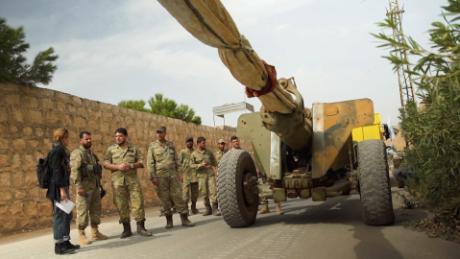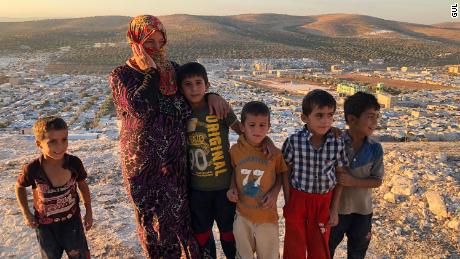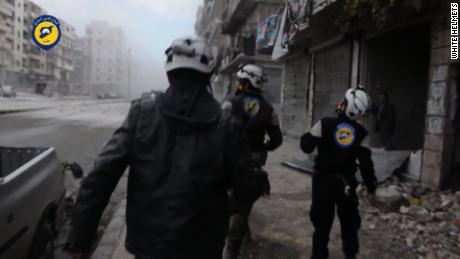Story highlights
- UK-based monitoring group estimates 200-250,000 people cut off from food and fuel supplies
- Regime bombing has cut off a vital supply route into the east of Aleppo
- Current nationwide ceasefire ends on Thursday, but fighting continues in the city
(CNN)Tens of thousands of civilians face an increasingly dire situation in the besieged Syrian city of Aleppo after a major supply artery was cut off by regime bombing.
The rebel-held Castello Road, the only route in to the east of the city, has been under constant bombardment from forces loyal to President Bashar al-Assad's government, the Syrian Observatory for Human Rights (SOHR) told CNN.
The UK-based monitoring group estimates that between 200-250,000 people are now prevented from receiving vital supplies of water, food and diesel from outside the city.
The United Nations said Tuesday that it was "deeply concerned" about increased fighting in and around city, saying it "continues to receive distressing reports of aerial bombardment and shelling on civilian locations in both western and eastern Aleppo."
It called for access to be given for aid and the evacuation of civilians.
Anas al-Abdah, President of the opposition Syrian Coalition, told reporters at a press conference in Istanbul Tuesday that it still held the Castello Road route, but if the regime intensifies its siege then it would be "harmful to civilians."
He said the rebel fighters themselves have been largely unaffected.
Ceasefire ignored
Fierce fighting between rebel groups and regime forces continued Tuesday -- mostly in the north of the city -- SOHR said, despite a nationwide ceasefire declared by the Syrian Army that expires on Thursday.
Overnight, at least 10 civilians, including children, were killed during shelling and airstrikes in the east of Aleppo, SOHR reported.
On Monday, At least 19 soldiers, security officers and militiamen loyal to the regime were also killed when rebels blew up a tunnel they were using in the old city of Aleppo, SOHR reported, though Syrian state media did not mention the incident.
Rami Abdulrahaman of the SOHR┬Ātold CNN Tuesday that more of the city was coming under fire.
"Since April 22 the shelling has moved further and further west. Shelling every day, from airstrikes, from bombs, rockets," he said.
He also said the SOHR estimated that 60% of civilian casualties were killed by regime forces, while 40% were attributed to rebel groups.
Continuous attacks
According to the monitoring group, Aleppo has seen many of its neighborhoods come under fire for 80 consecutive days, with more than 6,000 people -- mainly civilians -- killed or injured. It said rebel-held areas in the east of the city have come under sustained attack by regime artillery and airstrikes, while regime-controlled areas in western neighborhoods have been shelled by rebel and Islamic factions.
Syria has witnessed a number of ceasefires come and go over the past few months. Despite Russia's willingness to support the Assad regime militarily, Moscow and Washington have been working together to push for a cessation in the violence in Aleppo and surrounding areas.
When asked why this latest ceasefire wasn't being honored, Abdulrahaman suggested these agreements don't include all parties involved in fighting on the ground. The Syrian government says any truce does not apply to "terrorists," a label it has used to describe ISIS and opposition rebels, and that they reserve the right to retaliate to attacks.
But opposition leader Alabdah said the Syrian regime and Russia are to blame for the ceasefire failing to hold, and that "the only path to a sustainable ceasefire is high-level diplomatic talks facilitated by the US, European Union and other world powers."











































